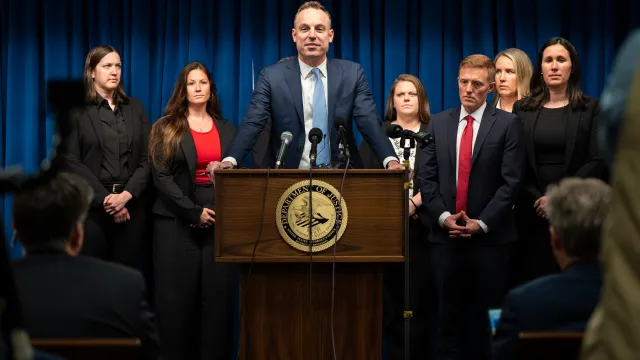A recent audit has unveiled serious lapses in oversight within the Minnesota Department of Education, allowing for the embezzlement of $250 million from a federal food aid program designed to support children during the pandemic. The Legislative Auditor’s report criticized the department for ignoring warning signs and failing to enforce program requirements, which facilitated extensive fraud through the nonprofit Feeding Our Future.

The investigation, which led to charges against 70 individuals, revealed a complex scheme involving false invoices, shell companies, money laundering, and kickbacks. Among those implicated is Aimee Bock, the founder of Feeding Our Future, who maintains her innocence despite widespread allegations.
According to the audit, the department’s inadequacies were highlighted even before the COVID-19 pandemic, indicating a systemic failure to uphold regulatory standards and respond effectively to suspicious activities. Education Commissioner Willie L. Jett II contested the findings, asserting that the department adhered to established protocols and promptly reported issues to law enforcement upon discovery.
Political reactions have been polarized, with Republican leaders attributing blame to the administration of Democratic Governor Tim Walz. They argue that the state’s actions were inadequate despite warnings, whereas Democratic legislators also expressed dismay over the lack of accountability from past commissioners who oversaw the agency during the period in question.
In response to the audit’s findings, Commissioner Jett has implemented reforms aimed at strengthening oversight, including the establishment of an Office of Inspector General and enhanced training for staff on fraud detection and reporting.
The federal investigation into the Minnesota fraud case underscores broader concerns about the misuse of pandemic relief funds nationwide, with over $280 billion estimated to have been fraudulently obtained across various programs. Efforts to recover stolen funds continue, with approximately $1.4 billion seized so far.
The scandal has highlighted the vulnerabilities in emergency aid distribution systems and raised calls for stricter oversight to prevent future abuses of taxpayer funds.